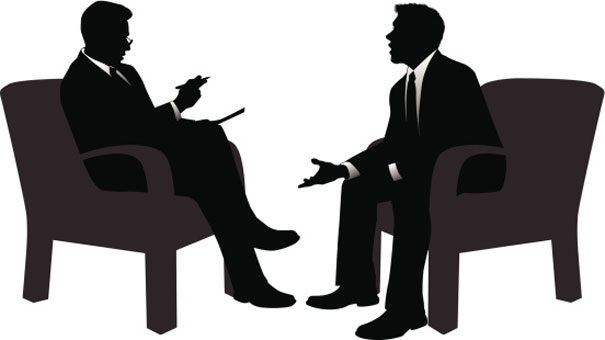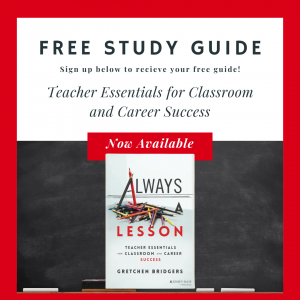“Please, DO NOT Do That” Interview Advice
As an educational consultant, I often get asked to help with hiring and training of personnel. With over 1,000 interviews under my belt this year alone, there are a few patterns that I wanted to call out in hopes it helps those of you on your own interview adventures nail not just a job, but a career. (Although all of this advice came from personal experience, I did have a few extreme “did that really just happen?” moments that I thought could bring you some joy and have marked them as a “side note“!)
10. Negative Descriptors
- You’re a procrastinator – Just because you wait until the last minute to complete a task since you are better under pressure does not convey that you put your own needs before that of an organization and that you are reliable to pull your weight. Even if you happen to be a procrastinator, this is not the time to divulge that information.
9. Hygiene
- Clothing– Ensure you are well groomed prior to an interview, meaning you comb your hair, ensure your clothing is straightened and appropriate. Please wear deodorant instead of extra sprays of perfume or cologne. (Side note– proper oxygen intake is required for the interviewer to successfully ask a question since some rooms lack windows and a closed door is necessary to protect the privacy of the conversation.)
- Cleanliness– Shaking hands happens often as a way to begin and end an interview. Be sure to wash your hands with soap prior to an interview. (Side note– if you happen to need a tissue, ensure you find one instead of using your finger and then shaking someone’s hand.)
8. Professionalism
- Arrive on time– Show your interest for a potential job by arriving prior to the start time of the interview. This gives you time to get settled in, look around the environment and really get a feel for the place. It also helps calm your nerves as you are not in a rush. The attitude that you are just “fitting us in” to your schedule doesn’t convey a desire to be part of a team.
- Arrive alone– An interview is a time for you to shine, not your family or significant others. Leave your support system at home while you showcase your skills. Some interview sites require rounds of interviews where you are meeting with a variety of staff at different locations on site, requiring a lot of shuffling on your part. If your entourage is with you, they begin following you around like lost puppy dogs and this does not convey that you are an independent, confident person who can perform the job. (Side note– even if you need a ride from a significant other, they can remain in the car or take the car elsewhere while you are in the interview- it does not mean your significant other should follow you in and accompany you along the interview phases of face-to-face interviews, data exercise, school tour, and sample lesson.)
- Use proper English– Putting your best foot forward means brushing up on your formal language. Be sure to leave the casual tone at home. For example, “yes” instead of “yea”/ “yup” and “because” instead of “cuz.” (Side note– even though you might speak differently at home with your friends and family does not mean you should share that language during an interview with phrases such as “I be goin…” or “them kids” or “for real.”)
- Assume the best– Even if you think a question is obvious or simple, just answer the question instead of showing your frustration. (Side note– Sharing your answer followed by the phrase “duh” is condescending and inappropriate to someone who could potentially be your supervisor. Keep those thoughts in your head.)
7. Phone Interviews
- Hanging up- If an interview is not going in the direction you wish or you figure out that its not going to be a good fit, either finish the interview out of courtesy for the time the other person took to set it up and spend time talking with you or politely excuse yourself and express a change in interest. (Side note– it is never a good idea to share your frustration for the questions being asked, point the finger at the interviewer saying “you must not want a professional” and then hang up. You never know when your paths may cross again and you want a positive memory if it does.)
- Inappropriate ring back tones or voice mail recordings- Although you may have a favorite song that you want to play for friends when they call, there are other people in your life that could call you and that song may not be appropriate for the audience. In fact, its encouraged to not have any sort of ring back tone or informal recording regardless of who is calling. (Side note– it could be hard to know if the caller has reached the correct number when you do not share your full name or phone number on the recording, for example “yo its Brian” or “It’s me. Leave me a message or don’t.)
6. Nerves
- Laughing at questions- Being nervous is natural, but you don’t want your nerves to come out during the interview in the form of a nervous laugh, especially if you do it after every statement you make. It is distracting from the knowledge you are sharing.
5. Filler Words/Statements
- Stop Talking- When you are nervous, many people have a tendency to continue talking. Quiet moments feel like they are hours long and extremely awkward. But, don’t fill the space with filler words or worse, continue adding on to the point you already made. Sometimes the interviewer is taking notes and needs a minute to jot down a thought before moving on and the more you talk, the more they have to write! Examples of filler words could be “so” or “yea” or “um.” Practice interviewing and see if you have repeated phrases you use to fill the quiet space. (Side note– The filler phrase “good question” spoken after every question asked is insincere. The interviewer took time to carefully craft such questions and so it can just be assumed all the questions are going to be “good.”
4. Friendly Disposition
- Rude hello- A smile and formal greeting goes a long way to get the interview off to a great start. Not making eye contact, saying “hey” instead of “hello,” or not even introducing yourself comes off as rude. You want to convey you are present, excited and eagerly looking forward to talking to someone. (Side note– When on a phone interview, its encouraged that you pick up the phone stating your name so the interviewer knows they called the right number. For example, “Hello this is Gretchen Bridgers” versus “yea?” or a rushed, annoyed “hello.” You knew you had the interview lined up at the appropriate time, so it should not be a surprise someone you are trying to impress is calling you.)
3. Clear, Specific Responses
- Just answer the question- As mentioned in the filler words/statements section above, many times an interviewer has numerous candidates lined up after you and time is of the essence. You want your responses to be clear and specific. Long tangents, stories, examples or any other additional information is not encouraged unless prompted. It could be a good idea to ask at the beginning of the interview how long they have set aside to speak with you so you can adjust your responses accordingly. Some of the most knowledgeable, capable candidates have a concise response that answers the question directly. (Side note- If the interviewer has to prompt you, rephrase the question or even repeat the question, take the hint that you are not answering the question accurately or quickly enough and adjust your approach immediately.)
2. Come prepared
- Pen and paper are a must- Even if the interviewer has told you that you do not need to bring anything to the interview, always bring something to write on and something to write with along with you. Generally there will be time at the end of the interview to ask questions, so having those pre-scripted is encouraged. Also, jotting down notes during the interview can help you reflect afterwards and even prepare for future interviews (although this requires practice so as not to slow down the interview or frazzle you in the process. The interviewer may give you information for next steps (like a number to call or web address to visit) and you’ll want to write that down without having to ask the person to hold on as you search around for a non-existent writing utensil.
1. Be yourself
- Personality goes a long way– You can still be professional and polished but smile or have a sense of humor. Practice having conversations that are formal but convey your personality with friends and family prior to an interview. You don’t want to seem stiff, but you don’t want to be relaxed like you’re at a backyard barbecue. Many interviewers hire someone over a more competent choice because they had a pleasant demeanor or personality conveyed during the interview. Be your best self, but still be you.
If you would like personalized feedback on your professional documentation (resume, cover letter, and philosophy of education), click here. Or if you would like to practice interviewing with me, click here.
Additionally, check out these links for more interview help:
Teacher Leader Interview Guide
What “Do Not Do This” interview tips would you add to the list?



 Get Edu-Tips, Freebies and grab your FREE Study Guide for Gretchen’s New Book!
Get Edu-Tips, Freebies and grab your FREE Study Guide for Gretchen’s New Book!